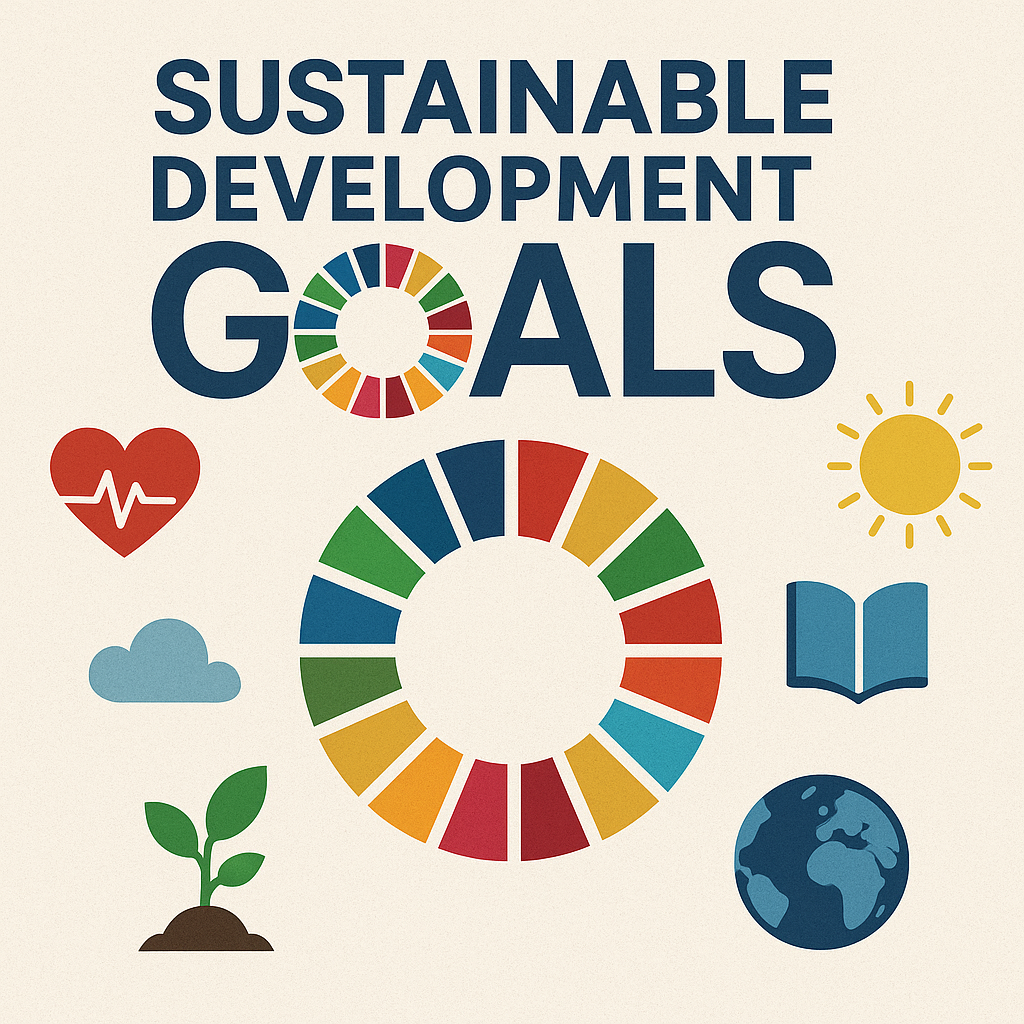In 2015, the United Nations created an important plan for global development called the 2030 Agenda for Sustainable Development. This plan is centered on 17 Sustainable Development Goals (SDGs). The goals are a call for action to eradicate poverty, protect the environment, and promote a good life and peace for all people by 2030.
The Nature of the SDGs
The SDGs are a plan that addresses the principal causes of inequality and environmental degradation on the economic, social, and environmental levels. Each goal, such as No Poverty (Goal 1), Quality Education (Goal 4), or Climate Action (Goal 13), is connected and requires coordination among governments, businesses, communities, and individuals.
These goals are not just wishes—they are measurable objectives. For example, Target 3 is aimed at promoting good health and well-being for all, like lowering maternal mortality rates and fighting infectious diseases.
Why the SDGs Matter
The world today faces big problems: climate change endangers nature and human existence, inequalities still exist in the world, and wars still displace people from their homes. The SDGs offer a guide to tackle these urgent issues through equitable, inclusive, and sustainable development strategies.
The SDGs acknowledge that all countries have similar development needs. They apply to both developed and developing countries, observing that success in one area counts towards the stability and influence of the world.
Progress and Challenges Although there has been phenomenal progress in numerous fields—more access to education and heavy investment in renewable energy, for example—there are reversals along the way to 2030. The COVID-19 pandemic, for example, rolled back progress in poverty reduction and health access. In addition, financing gaps, political instability, and data gaps continue to hamper implementation in most countries.
As per the UN's 2023 SDG Progress Report, merely around 15% of the goals are in sync currently, which highlights the necessity for stepped-up efforts and innovative collaborations.
The Significance of Cooperation
The SDGs cannot be achieved by governments only. Schools, communities, and business also have a critical part to play in driving new thinking, encouraging accountability, and enabling people. Target 17 — Partnerships for the Goals — shows that, internationally, we must work together to build up resources, exchange technology, and develop capacities.
A Call to Action As we approach the final five years of the 2030 agenda, we cannot be complacent. The SDGs present us with a unique opportunity to build a more equitable, inclusive, and sustainable world for generations to come. But for us to achieve this, we must act fast, remain committed, and most critically, share the burden together. Now more than ever, the sentiments of the former UN Secretary-General Ban Ki-moon hold true: "We are the first generation that can end poverty, the last that can address climate change." We should not let this opportunity slip away.
Constructing a Better World: Why the Sustainable Development Goals Matter
Postado 2025-04-16 13:33:53

Most Recent
Top Comments
Record
Recording 00:00
Os comentários foram desativados para esta publicação.
- Aarush GhoshGives knowledge. GoodGives knowledge. Good
- Curtir
- Responder
- 2025-04-16 14:48:16
- 1
1 Respostas- Shriyans RajHow many points are you havingHow many points are you having
- Curtir
- Responder
- 2025-04-17 13:01:17
- 1
-
-
Categorias
- Sustainability
- Início
- Wellness
- Theater
- Sports
- Shopping
- Religion
- Party
- Outro
- Networking
- Music
- Literature
- Art
- Health
- Gardening
- Jogos
- Food
- Fitness
- Film
- Drinks
- Dance
- Crafts
- Causes
Leia mais
Small Changes, Big Impact
Reducing our carbon footprint starts with understanding the little things that add up....
A sister's love
Sisterhood: it’s a relationship that only those who have grown up with a person as your...
Guru nanak jayanti
Friday, November 15.Each year, this day is observed worldwide as Guru Nanak Jayanti. In 2024, it...
The Most Eco-Friendly Digital Trends
The Rise of Eco-Friendly Digital Trends
The digital world, while offering countless benefits,...
×
Your daily access limit has been reached. Please try again tomorrow.
© 2025 GoSharpener Pvt.Ltd.
Refund and Cancellation policy - We do not entertain any refunds and cancellation Portuguese (Brazil)
Refund and Cancellation policy - We do not entertain any refunds and cancellation Portuguese (Brazil)
